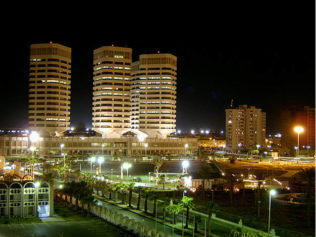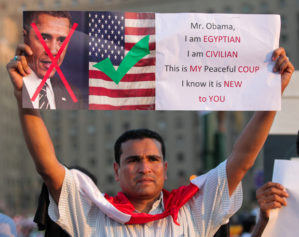In a region already brimming with chaos and instability, Tunisia exploded in protests and rage after the assassination earlier today of a leading opposition figure. The killing of outspoken Chokri Belaid sets a precarious course for the North African nation as it makes its way to new democratic elections later this year.
As in other nations in the region, the struggle in Tunisia is between the radically ultraconservative Islamists and the more liberal and moderate factions who oppose the instituting of Sharia law.
Belaid, the liberal opposition leader, was head of Tunisia’s Unified Democratic Nationalist Party. Known for his bushy mustache, Belaid had been increasingly critical of Tunisia’s moderate ruling party, Ennahda, for not doing more to stop the ultraconservative Salafi from using violence to intimidate Tunisians. Salafists have been attacking movie houses, art galleries and institutions they deem as against Islam.
As recently as Saturday, Belaid, a 48-year-old lawyer, said a meeting with his supporters had been broken up by an attack conducted by the Ennahda and Salafi. “At the end of our meeting, a group of Ennahda mercenaries and Salafists attacked our activists,” Belaid said.
Tunisia is the country where the Arab Spring began in January 2011, when Tunisians overthrew longtime dictator Zine Al Abidine Ben Ali. It has been considered the nation that had the best chance at democracy, with its small population of 10 million relatively well-educated citizens.
But as in other countries in northern Africa, it has not been able to overcome bitter religious divisions over the nature of the society in which Tunisians will live.
Belaid was shot as he left his house in Tunis on Wednesday morning and he died at a nearby medical clinic. In an interview with French Radio RTL, his wife said he was shot twice in the head, once in the neck and once in the heart at point blank range.
“He died for the country. He died for democracy,” Basma Belaid said. “He was threatened all the time.”
She added that she held Ennahda, the ruling party, directly responsible for his death.
But Ennahda issued a statement denying responsibility and calling the killing a “heinous crime” that targeted the “security and stability of Tunisia.”
After news spread of Belaid’s death, thousands of angry protesters took to the streets of Tunis, the capital, and other cities across the country.
Tunisian President Moncef Marzouki, who is a member of a secular party in the governing coalition, gave a speech before the European Parliament in Strasbourg, calling the assassination a threat against all Tunisians. The president canceled a trip to Cairo and rushed home.
“All these destabilization attempts – and there will be others because for some the Tunisian model should not succeed – I can tell you that we will face the challenge and defeat it,” he told journalists.
“To have an assassination at this time with a firearm at point-blank range is shocking,” Amna Guellali, a researcher for Human Rights Watch based in Tunis, told The New York Times.
“We’re in a climate of political violence now,” she said.
She said Human Rights Watch had documented numerous attacks against activists, journalists and political figures by Salafi and other groups. “Last month, there were various leaders targeted, various meetings of political parties disrupted and assaulted,” she said.
In Washington, State Department spokeswoman Victoria Nuland called the killing an “outrageous and cowardly act.”
She called on the government in Tunis to conduct a “fair, transparent and professional investigation to ensure that the perpetrators are brought to justice consistent with Tunisian law and international norms.”
Belaid’s funeral is scheduled for Friday. His family said members of the ruling coalition will not be welcome.


